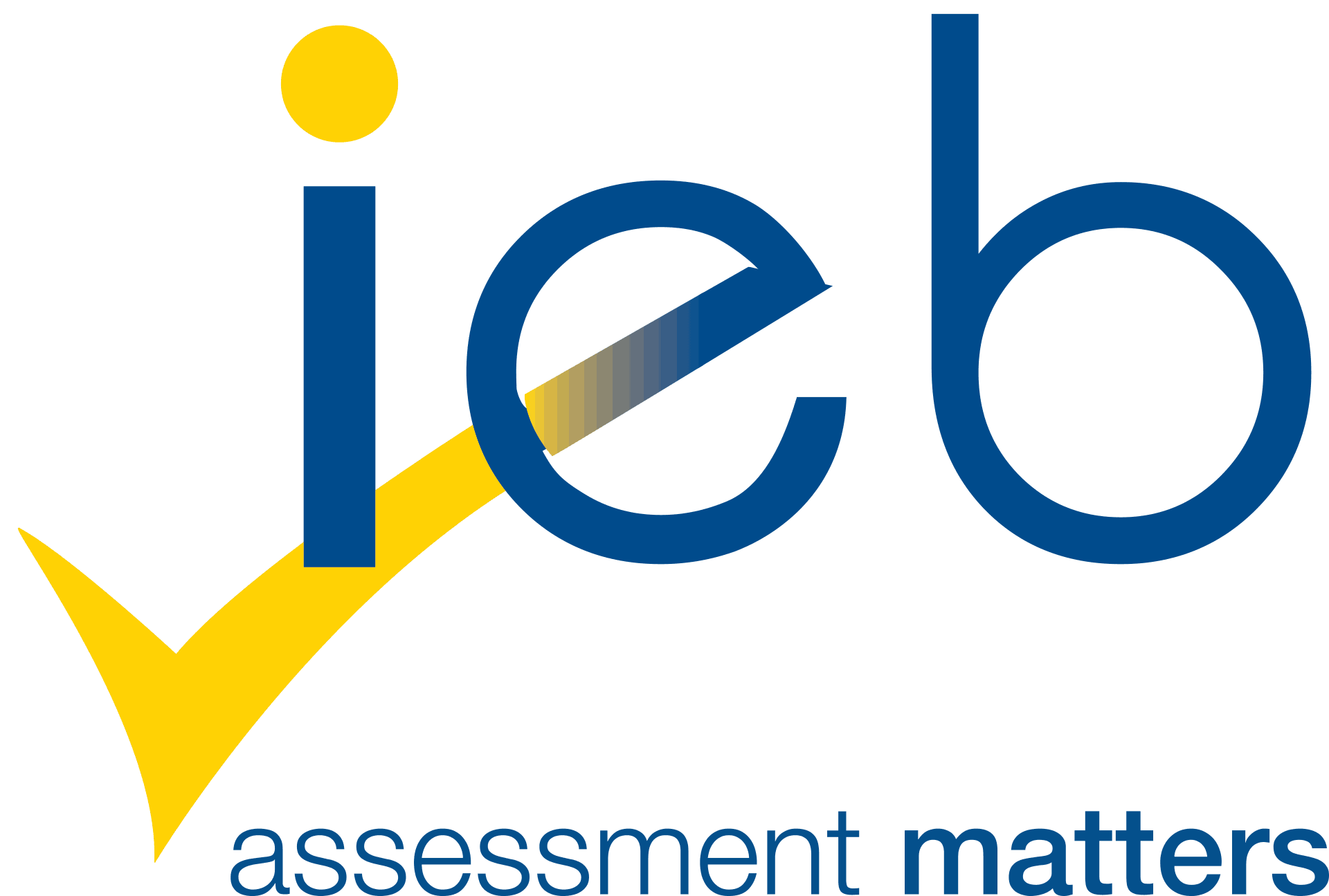News
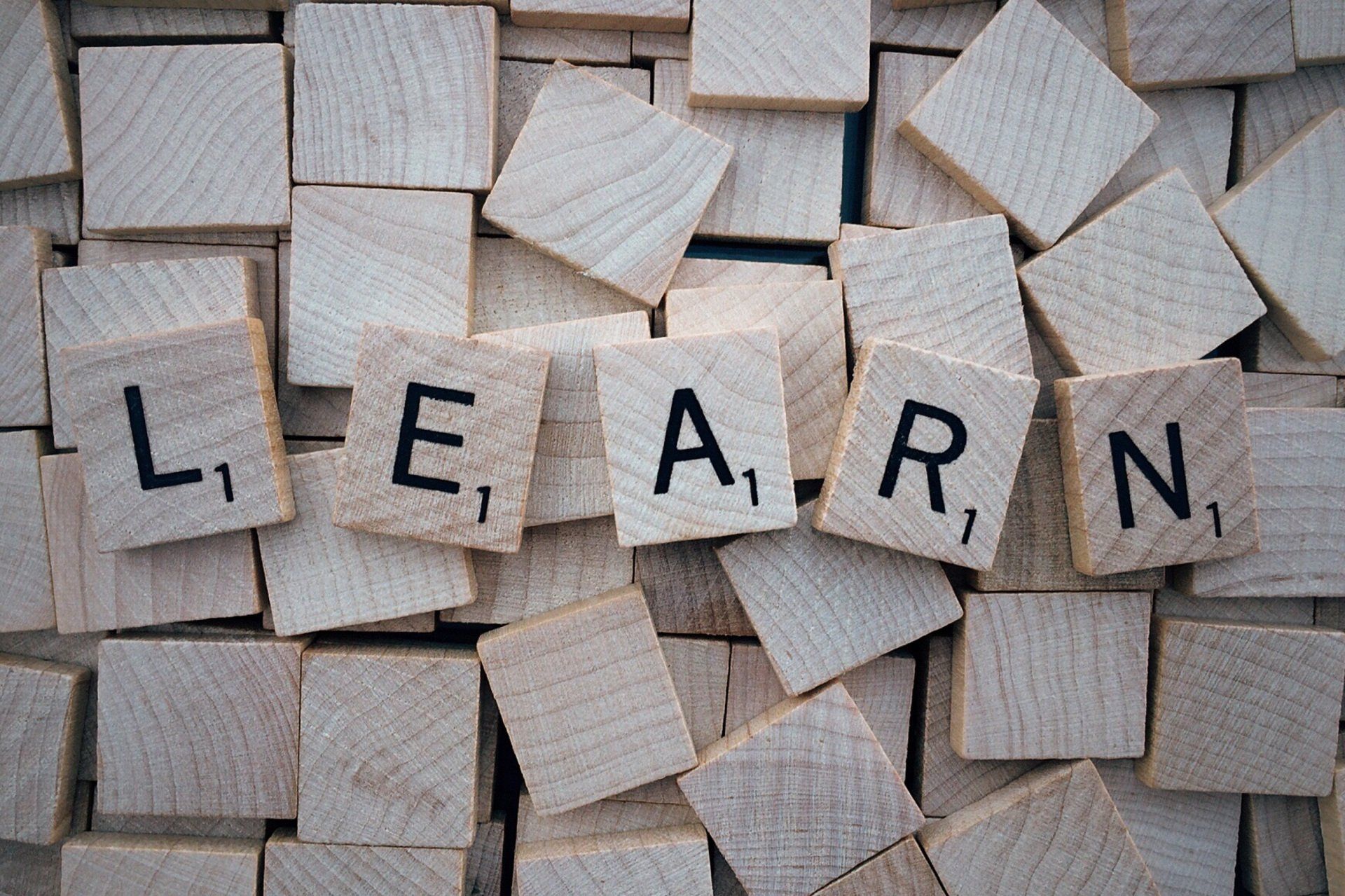
January 16, 2023
In a first for the country, South Africa’s leading private education provider, ADvTECH, will this month start rolling out a unique, locally developed personalised learning digital platform across its schools. ADvLEARN is a customised platform for ADvTECH Schools that provides personalised learning paths using adaptive technology to deliver data-driven insights and learning analytics. Students will therefore have a unique learning experience while constantly improving their understanding in core areas. “We are very excited to have partnered with MathU to bring this groundbreaking digital learning platform to our Grade 7 to 12 students, a move which will further cement our reputation as a leader in education in the country, in line with our vision to stay at the forefront of global technological innovation and emerging best practices,” says Desiree Hugo, Academic Head at ADvTECH’s Schools Division. ADvTECH Schools Division will initially use ADvLEARN to enhance learning in Mathematics (Grade 7 to 12), Physical Sciences (Grade 10 to 12) and Mathematical Literacy (Grade 10 to 12). The pedagogy applied in ADvLEARN seeks to find the gaps in students’ learning, and then fill these gaps to ensure they improve their understanding in core areas. Through adaptive learning technology, the system supports both students who want to progress faster as well as students requiring reinforcement of key concepts. MathU is a software as a service (SaaS) company based in Pretoria, specialising in artificial intelligence and software engineering. The team at MathU has developed an innovative software solution that uses state-of-the-art engineering principles to map, monitor, and assess student progress. The platform has been adapted to cater to the specific needs of schools and universities, and the company was founded by engineers and scientists who are passionate about improving mathematics and science education. MathU provides solutions to schools and universities looking to enhance their educational offerings and better support their students. “In addition to enhancing student learning, ADvLEARN will also give teachers the ability to instantly allocate relevant student work and homework to student devices, immediately access student performance and achievement data, as well as easily view and identify concepts needing reteaching and review,” says Hugo. “We are truly excited about taking education another step into the future in 2023, and look forward to seeing how this strategic partnership cements and accelerates STEM learning for our students.”
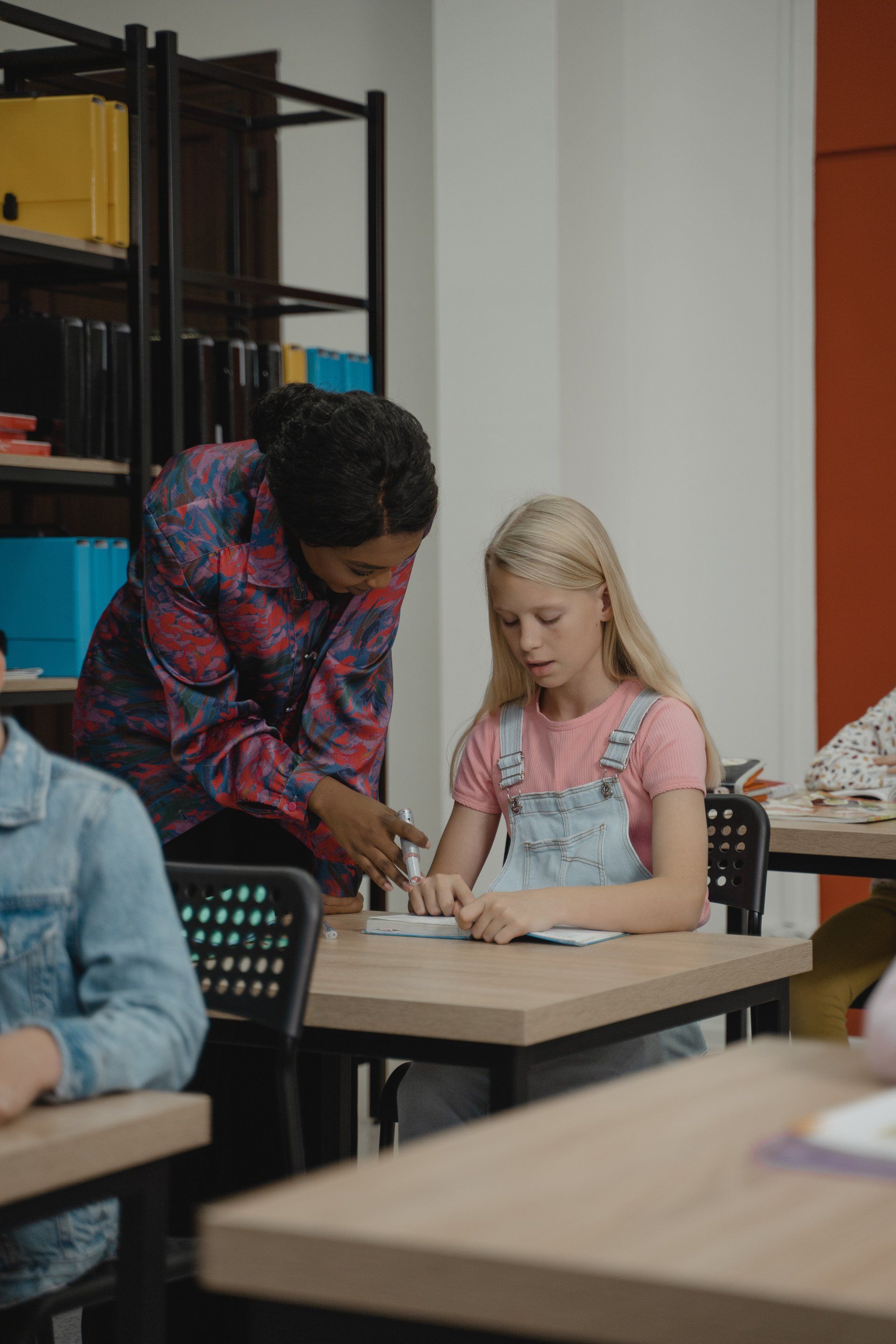
December 14, 2022
POST-LOCKDOWN: ADDRESSING SA’S TEACHING AND LEARNING CHALLENGES IN 2023 BY DR GILLIAN MOONEY, Dean: Academic Support and Development, The Independent Institute of Education South Africa is yet to determine the full implications of the pandemic lockdowns on Teaching and Learning, and we can only really speak to the short-term effects at this point. There is currently a wealth of academic literature on this topic, and research will continue. However, it is already clear that the pandemic lockdowns represented a significant disruption to the way we think about good teaching practice and what students need to do in order to learn. Reflecting at this current point in time, certain themes have been identified, some affecting both lecturers and students, some affecting a single group only, and some affecting the practices of teaching and learning. THEME 1: SOCIO-EMOTIONAL CONSEQUENCES It is well-known that teaching and learning is not only a cognitive issue, but that how we feel about ourselves and others has an important role to play. We also need to remember that the lockdown had emotional and social consequences for everyone. These primarily included a sense of isolation from others - this is well reported in the literature and indeed, likely to be part of what we call “common sense”. In terms of post-lockdown, many continue to feel this sense of isolation, which requires a conscious and concerted effort on the part of schools and universities to address. This may be complicated by the fact that the pandemic itself also made us less trusting of one another. Wearing masks, or essentially, protecting ourselves from other people, may still linger in our psyches. Across South Africa’s schools and universities, there has been an increase in the number of students who are suffering from challenges related to mental and emotional wellbeing such as depression and anxiety and seeking assessment concessions as a result of this. Some examples of these would be requests for more time to complete assessments or writing assessments in a separate venue. What may be interesting to research, albeit in the absence of a pre-pandemic baseline, is determining whether parents who were home-schooling their children are now more invested/ involved than before in their child’s education. The point here is that, never before have parents had to know in such detail what their children are doing at school. Has this interest continued post-pandemic? If so, and anecdotally that seems to be the case, that will be a welcome development if it is the case that parents now take a closer interest in their child’s educational journey. However, what we may find is that parents have experienced “school fatigue”, and may be less inclined to engage with the everyday issues of their children’s education. This is all supposition, and substantive research would be required here to gain answers to this question. THEME 2: NAVIGATING THE TRANSITION FROM SCHOOL TO UNIVERSITY It has always been a challenge for students to adapt from one learning space to a different one. However, the “COVID-Cohorts”, those students who finished their schooling during the pandemic and moved to university during or shortly thereafter, have found this particularly challenging. For example, some students had their last two years of schooling either online or being “home-schooled” independently. These experiences would have been different, depending on the resources of the school and the parents. For some university students, they began their university journeys fully online, and unfortunately, in many instances, still continue to do so where institutions still haven’t returned to in-person lectures. In other instances, students may be choosing to study in the distance, rather than contact mode of offering. This makes for a very non-traditional university experience and detracts from the life milestone that being a student traditionally entails. Most universities have a hybrid model going, i.e. some classes are online, and some are in a classroom. Some institutions, because of their smaller size classes (and the physical distancing constraints) were able to accommodate this kind of hybrid model from the pandemic until now, so there has been very little change for these students. However, not all universities currently have all classes fully in person, while others do, so there may be variance here. As those universities who have not yet returned to in-person prepare to do so in 2023, the effects of the pandemic lockdown may become clearer. THEME 3: LEVERAGING TECHNOLOGY IN TEACHING The pandemic forced a widescale rethinking of how teaching and learning occur. This is an important point because the historically basic transaction of teaching, i.e. a person standing in front of a class facilitating learning, has never really changed. What the lockdowns forced onto us was a re-think of how we assess, how we mark, how we teach, and how we use our learning management systems (LMS). So, it is not all doom and gloom because here a crisis was an important turning point that allowed fast-paced development in teaching and learning practice to occur. However, as with any crisis, this placed pressure on both lecturers and students, who needed to adapt quickly so as not to fall behind. It also placed a tremendous burden on those institutions that lack agility and resources, and some of this still needs to be overcome even now. An important example of this would be marking online, instead of hard copies. This was a big change for lecturers, who have now adapted to this practice and are not likely to want to go back to pen and paper. We also have more effective ways to track student submissions. There is a steep hill to climb for those institutions that have not yet adapted. The challenge now is not merely to replicate bad teaching and learning practices with fancy technology, but to understand how technology can enhance teaching and learning. There is now a plethora of competing technological products, which are all trying to gain their market share. Obviously, as with anything, some are better than others, and institutions need to think carefully and do their due diligence before making such big investments. ENDS Issued by: MEROPA COMMUNICATIONS On behalf of: THE INDEPENDENT INSTITUTE OF EDUCATION www.theworldofwork.co.za or www.iie.ac.za Note to editor: The Independent Institute of Education (The IIE) is a division of the JSE-listed ADvTECH Group, Africa’s largest private education provider. The IIE is the largest, most accredited registered private higher education institute in South Africa, and is accredited by The British Accreditation Council (BAC), the independent quality assurance authority that accredits private institutions in the UK.
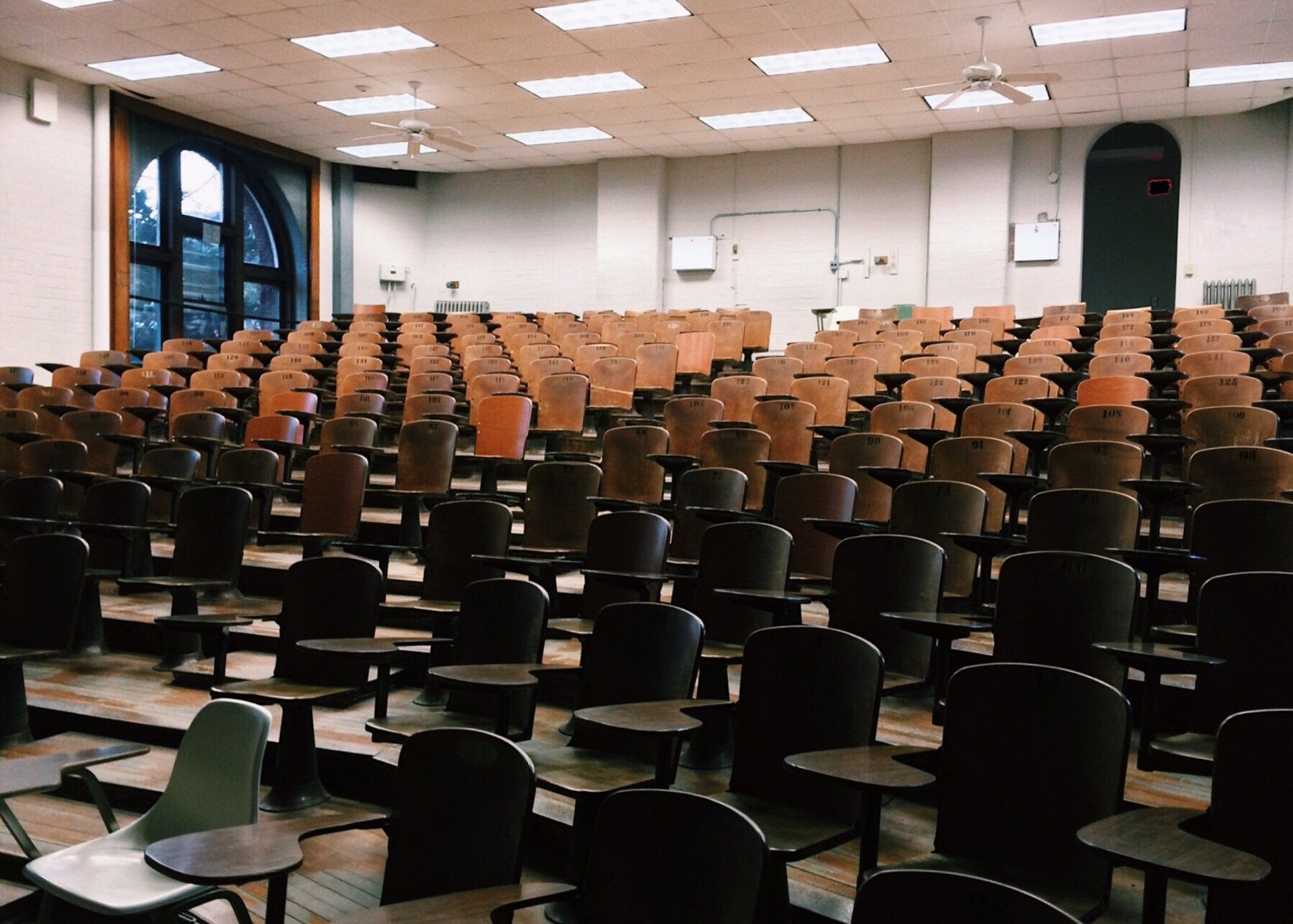
October 18, 2022
It’s that time of the year when students experience what is called ‘year-end fatigue’ – whether they be Matrics getting ready for the most important exams of their school career, senior high students aiming to perform at their best as they progress towards Grade 12, or graduate students at universities preparing for their end-of-year assessments. For all of these students, the coming weeks are going to be a test of their focus, strength and endurance as they aim for top marks. Yet at the same time, they have to contend with the fatigue that has most likely set in after all their hard work during the past year. But by reframing their mindset and ensuring they stick to some tried and tested guidelines, they can all dive into the last quarter of 2022 with renewed enthusiasm to ensure they finish the year strong, an education expert says. “Signs of year-end fatigue include low energy levels, a feeling of being unable to keep up, a lack of motivation, feeling overwhelmed and exhausted, being unable to sleep, and low levels of concentration while possibly feeling anxious,” says Dr Rufaro Audrey Mavunga, Senior Head of Programme in the Faculty of Law at The Independent Institute of Education, SA’s leading private higher education provider. She says this situation may lead students to start slacking when they can least afford to, for instance by bunking classes, not participating in school or university activities, procrastinating and putting off revision they planned hoping that they might feel more motivated to tackle tasks later, and by checking out of their circumstances by sleeping too much or watching too much television. “If you are feeling like this, rest assured that it is normal to feel tired and overwhelmed and that you are not alone. However, you should also know that it is possible and important to overcome these feelings so that you can finish strong, and that it is within your ability to do so if you act decisively right now. There is still enough time to make sure you can get a handle on things again and get on top of your academic work to the best of your ability.” Dr Mavunga advises students as follows: Take some time off This may sound counter-productive, but it can help to take a day or two to regain your focus without feeling guilty. In these days, you can catch up on sleep, get out in nature for some relaxation, and remind yourself about the why and the how of what you are doing right now. Get your mind in the right place, and resolve to start the final stretch with vigour. Also use this time to lay out your schedule and plans for the coming weeks, right until you’ve put down your pen on your last exam. Revisit your study timetable and manage your time efficiently To finish strong, you need to continue with regular study sessions every week till the end of your exams. Do not count on doing an all-nighter just before you write an assessment. You should revisit your study timetable and ensure that you have set up fixed hours for study every day. Plan for enough time to study each module and add your study sessions to your calendar like any other commitments. This guarantees that you keep in mind that this is time set aside exclusively for studying. Bear in mind a study plan works best when it is followed consistently. It is imperative that you stick to your plan, as this will ease tension and anxiety if you can see your consistent progress. Maintain a healthy lifestyle Exercise has many benefits, but it has been proven that exercise releases endorphins, which can improve your mood and reduce stress levels. Fatigue and tiredness could also be an effect of a lack of proper nutrition. Make healthy meal selections wherever possible and consume lots of water. Make sure you factor enough sleep into your schedule and don’t use that time to endlessly and mindlessly browse social media. Stay away from activities that are going to tire you out for days to come and keep a single-minded focus on your priorities right now. This too shall pass, and you’ll be happy you stayed true to yourself when results day comes. Get help if you need it Sometimes one feels so helpless and it may feel like you are stuck in a deep dark hole with no way of coming out. Give attention to the positives you encounter and embrace them. Consult school or campus support staff to gain different perspectives on how to ease the fatigue and to get over negative feelings you may have. If you need additional assistance with the academic side of things, approach a teacher or a lecturer for guidance. If you need additional emotional support, ask trusted adults at home or at your institution to assist in getting the support you need. Keep your eye on the end goal Commit to finishing strong. In your downtime, look at your path ahead – what dreams and aspirations will become accessible if you perform well during this stage of your academic journey? What avenues of study may open up for you? What possibilities and opportunities may arise? “At this time of year, it’s easy to get lost in the fog of studying and worrying, and it’s easy to lose perspective about the bigger world out there and the fact that all of this is part of life’s journey. The end of this year will soon come around, and your effort will be rewarded if you know that you gave it your all on the road to making your dreams a reality,” says Dr Mavunga. ENDS Issued by: MEROPA COMMUNICATIONS On behalf of: THE INDEPENDENT INSTITUTE OF EDUCATION www.theworldofwork.co.za or www.iie.ac.za Note to editor: The Independent Institute of Education (The IIE) is a division of the JSE-listed ADvTECH Group, Africa’s largest private education provider. The IIE is the largest, most accredited registered private higher education institute in South Africa, and the only one accredited by The British Accreditation Council (BAC), the independent quality assurance authority that accredits private institutions in the UK.

September 6, 2022
Time is running out for parents and guardians of senior primary school students to find and enrol at a high school that will best prepare and position the child for a successful future. It can be very confusing to make a call on which school is best suited for this most important task, as there are countless variables at play. However, if parents are prepared with a checklist of questions they need to ask (as well as examples of good responses), this task can be made a little easier – particularly when attending a school’s open day, an education expert says. “Good schools will host open days throughout the year, allowing parents and prospective students the opportunity to view and get a feel of a campus, ask questions, and decide whether a particular school is the right fit for them,” says Desiree Hugo, Academic Head: Schools Division at ADvTECH, Africa’s leading private education provider. “These open days are geared to provide opportunities for sharing the best aspects of a school, and excitement can quickly let important questions that need to be considered fall off the agenda. Whether prospective parents attend an open day, or just pay a school a regular visit to guide decision making, it is good practice to go with a plan in hand so that one can objectively compare schools on the various key elements required from an excellent institution,” Hugo says. The first factor – and a non-negotiable one at that – is the question of academic excellence and future-focused curricula, she says. “There can be no compromising on ensuring that the school you choose for your child will provide the absolute best on the academic front. An easy gauge of a school’s ability to deliver, is to have a look at end-of-year IEB Matric results to evaluate the performance of various schools against each other. Another way to judge this factor, is to look at benchmarking. “ Hugo advises that academically excellent schools will ensure they utilise international benchmarking assessments to confirm that the school remains locally and globally relevant with rigorous academic programmes and that academic data supports and engages all students in a personalised learning journey. “Also look out for clear visibility of student-centred practices as an important part of the academic model, intended to build confidence in an environment that values every student,” says Hugo. “Furthermore, parents should enquire whether the voices of the students are considered valuable in their learning journey towards academic excellence and student success, and whether they are they included in academic conversations with their parents about their plans for progress.” It is also a non-negotiable to enquire about the curriculum. A school must be able to provide evidence that their curriculum choice is implemented with integrity and is future-focused, and geared towards equipping students holistically across a broad range of technologies and global skills. Ask for evidence of what they do, how they do it, and outcomes, Hugo says. With the above basics satisfactorily answered, parents can move on to broader questions, such as: FACILITIES & AMENITIES The question that needs to be answered here, is how the offering supports the overall learning experience of students. Many schools select a focus for their offering, aligned to their fees, and may not offer all the bells and whistles, but rather ensure that the academic model and subsidiary activities are of an excellent standard instead of offering a wide bouquet. Check that classrooms are neat, well maintained and that they cater to a wide range of interests and offer flexible seating possibilities. For instance, do classrooms have useful educational technology, is Wi-Fi available, are equipped laboratories accessible, if promised, and are spaces for art, design and innovation utilised for future focused learning? On the sport side, do they cater to a variety of sport codes aligned to their model and offering, well-kept fields and facilities for those particular sporting opportunities on offer? Even if a child is not particularly sporty, well-maintained grounds are a good sign to take into consideration. STUDENT SUPPORT If a student requires additional academic support, whether it be emotionally or academically, what support structures does the school have in place, and how are they accessed? What disciplinary processes are in place to address bullying and other issues that may impact on the wellbeing and success of students? Does the school support the values of respect, diversity and inclusion – and is this evident in the classrooms and across the culture of the school? TEACHERS & CAMPUS STAFF What is the ratio of teacher to students in classes? And does the school highlight the academic practices to ensure all students are mentored and supported – no matter the class size? Are all teachers SACE accredited and can the school ensure police clearance is completed on all who work closely on the campus with children? Are the teachers offered professional learning opportunities to ensure curriculum and pedagogy are foregrounded to support student success? HOLISTIC ACADEMIC AND SKILLS DEVELOPMENT In addition to regular subjects that can be expected at most schools, which additional subjects may students access? What is the school’s approach to 21st Century Skills, such as communication, collaboration, analytical thinking, creative thinking, digital literacy, and problem-solving? How are these skills embedded in the curriculum and the everyday learning experience of students? Is there evidence of cross curricular teaching and learning, and are the students granted regular opportunities to share their thinking and co-construct their learning collaboratively? ENDS ABOUT ADvTECH The ADvTECH Group, a JSE-listed company, is Africa’s leading private education provider and a continental leader in quality education, training, skills development, and placement services. The Group reports its performance in a segmental structure reflecting the Schools and Tertiary as two separate education divisions, and Resourcing as the third division. ADvTECH’s Schools division comprises 9 brands with more than 108 schools across South Africa and the rest of Africa, including Gaborone International School in Botswana, and The Makini Group of Schools and Crawford International in Kenya. It owns 9 tertiary brands, across 32 campuses across South Africa and the rest of Africa. ADvTECH’s 8 resourcing brands places thousands of candidates annually, assisting graduates to make the transition from the world of study to the world of work.

June 24, 2022
A mere cursory glance at social media and parent groups shows the anxieties and frustrations of parents with school going children today regarding access to an excellent education. Lack of access at public schools is a major challenge, with parents whose children qualify on all counts not gaining admission – through no fault on their part, but because of capacity constraints. Another observed challenge is that of children already at school, but where the environment is simply not preparing them for the modern world because of outdated pedagogies and ways of working, non-productive homework requirements, or a system that no longer serves the needs of students. An education expert says while the above and other issues related to schools may feel like an impossible hill to climb for parents, the reality is that there are many options in the private sector of which parents may not be aware. Additionally, parents sometimes discard the idea of private education out of hand because of the perception that it might not be within their reach financially, when that is not necessarily the case. “Over the past weeks, many parents have had to tell their children that they were not accepted at any of the schools to which they applied, despite them qualifying for access,” says Kassandra Strydom, Academic Advisor: ADvTECH Schools Division Central Academic Team. “We’ve also noticed parents highlighting the struggles their children are facing because of personal challenges or circumstances, being just a number at school, being required to take subjects that are of no interest to them and being subjected to teaching methods and approaches that are out of touch regarding what is required in today’s world and what will be required of them in future. “Parental concerns are becoming evident. We urge these parents to investigate the options open to them in the private sector, because it can make a world of difference in a child’s educational journey, their self-actualisation and future prospects, and their general wellbeing,” says Strydom. Strydom says a key consideration for parents when investigating options in the private sector, is to consider WHAT KIND of school is right for their child, because unlike in the public sector, different private schools have very different offerings designed to cater to the specific needs of students and their families. She says top-level considerations when assessing any private school, will include the following: Class size Teacher qualifications, experience and expertise Commitment to continued professional teacher development on the part of the school Teaching styles, methodology and environments The selection of curriculum and whether qualifications will be internationally recognised Fee structures Sport and extra-curricular offerings as well as facilities Additional academic support as well as programmes such as core skill development and EdTech integration The kinds of private school offerings include the following: MODERN AND PROGRESSIVE SCHOOLS Emphasis on learning by doing – hands-on projects, expeditionary learning, experiential learning Integrated curriculum focused on thematic units Strong emphasis on problem solving and critical thinking Group work and development of social skills Understanding and action as the goals of learning as opposed to rote knowledge Collaborative and cooperative learning projects Education for social responsibility and democracy Integration of community service and service-learning projects into the daily curriculum Selection of subject content by looking forward to ask what skills will be needed in future society De-emphasis on textbooks in favour of varied learning resources Emphasis on lifelong learning and social skills Assessment by evaluation of child's projects and production Ed tech enabled learning opportunities These schools prepare students for responsible adulthood and potential leadership by laying an excellent academic foundation supported by future-focused skills that will ensure students have lifelong success TRADITIONAL HOLISTIC SCHOOLS/ RELIGIOUS TRADITIONAL SCHOOLS In addition to the above elements, traditional schools offer a strong academic focus with excellence in sport and culture opportunities for students. They seek to retain traditional values while preparing students for an ever-changing world. The recipe of following time-honoured traditions has been very successful and recognised for the excellent contributions it makes in every sphere of education and to the social and emotional development of each student. SPECIALISED ACADEMIC SUPPORT AND ASSISTED LEARNING These schools offer a non-traditional approach to education to support neurodiversity. The unique strategy creates opportunities for the academic support and nurturing of all students on their journey to achieving academic success. All students are included, catered for, and receive the additional support they require. The school believes that when a student joins the school, they are taking the first step toward their best future. creating opportunities for self-fulfilment and self-actualisation for all students, to develop their potential regardless of differences. Each student is taught according to their unique needs and in accordance with an individualised development plan by a multi-dimensional specialist team who follow a neurodiverse approach. School types as above can be broken down into top tier and mid-tier schools. The variety of school fee options can be aligned to the school’s offering. It is important to highlight that investigation into the academic success of students is important as this is possible at all fee levels, but the offering of additional subjects and activities vary. ONLINE HOME SCHOOLING Parents may consider investigating online/ homeschool options, but are urged to ensure that their chosen school focuses on ‘cognitive’ screentime – where students are able to engage during lessons – rather than opt for a ‘paper behind glass’ approach, which may impact successful study. “Very importantly, parents should feel comfortable that whichever school they choose, it has academic excellence at the core of its offering. Once that has been established, and the basic top-level considerations have been satisfied, parents can settle on the perfect environment for their child which fits with their budget, which will not only impact on the wellbeing and future preparedness of the child, but also on the family’s wellbeing as a whole,” says Strydom. ENDS ABOUT ADvTECH The ADvTECH Group, a JSE-listed company, is Africa’s largest private education provider and a continental leader in quality education, training, skills development, and placement services. The Group reports its performance in a segmental structure reflecting the Schools and Tertiary as two separate education divisions, and Resourcing as the third division. ADvTECH’s Schools division comprises 9 brands with more than 108 schools across South Africa and the rest of Africa, including Gaborone International School in Botswana, and The Makini Group of Schools and Crawford International in Kenya. It owns 9 tertiary brands, across 32 campuses across South Africa and the rest of Africa. ADvTECH’s 8 resourcing brands places thousands of candidates annually, assisting graduates to make the transition from the world of study to the world of work.
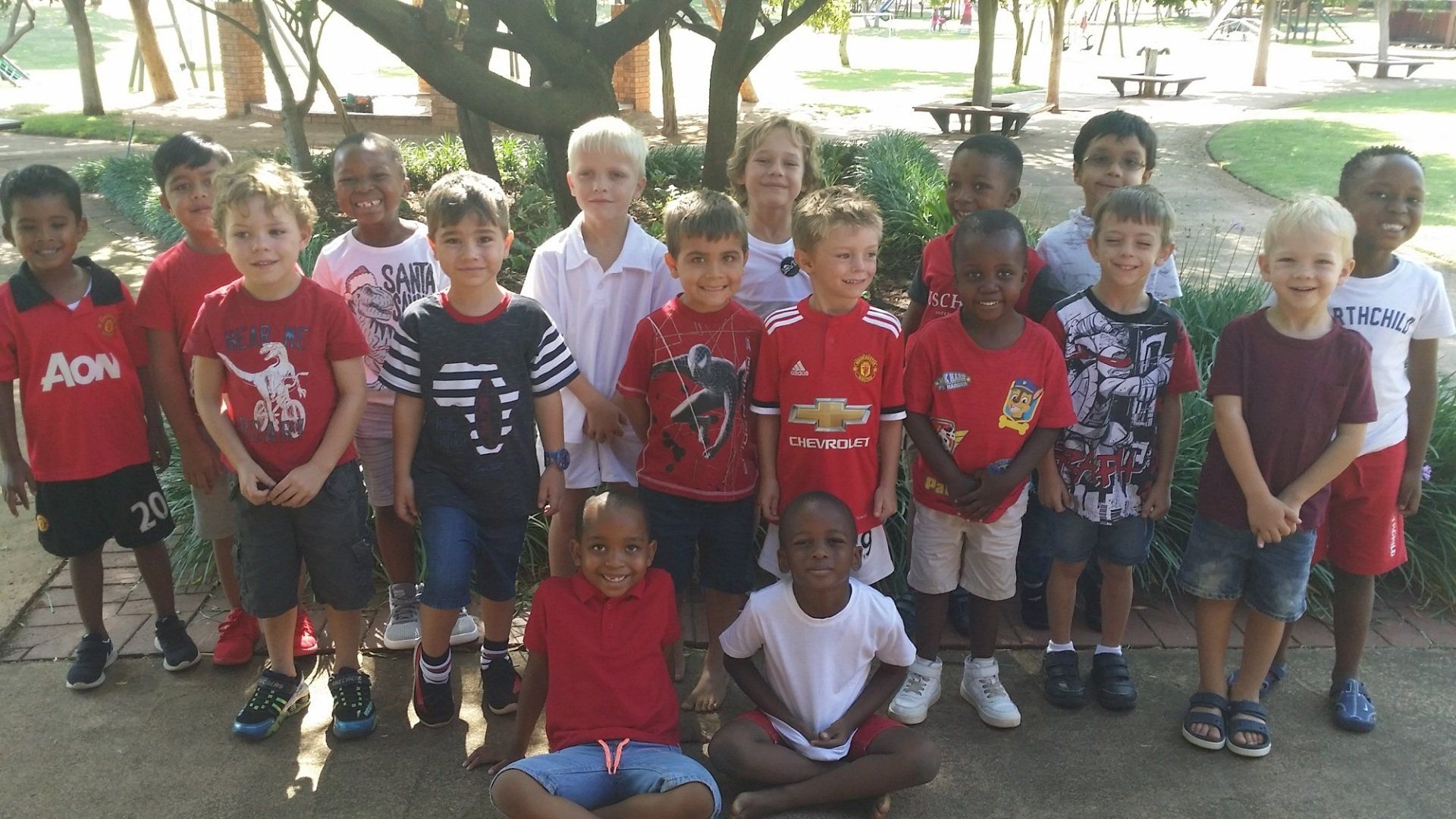
May 3, 2022
The transition of Early Childhood Development (ECD) from the Department of Social Development to the Department of Basic Education is now in full swing, and will change how the academic development of young children is approached in South Africa. The transition started this month, and will become effective from next year. Among the changes which will be introduced by the move, is the obligation on parents to send their children to school from Grade 00, as opposed to school attendance only being compulsory from Grade 1, as has been the case until now. An education expert says parents who now need to consider where they will send their young child from next year, must do their homework carefully to ensure the school they choose approaches ECD from a child-led learning perspective. This will ensure they start their academic journey appropriately for their age, that they build strong foundations, and that they have positive associations with attending school. “Schools have different programmes and approaches, and parents may be seduced by the idea of sending their child to a strictly academics focused ECD institution which will turn their little one into a mini Einstein before they even head to big school. However these good intentions are likely to fall flat, as this is not the correct and age-appropriate approach,” says Lynda Eagle, Academic Advisor at ADvTECH Schools, SA’s leading private education provider. “The early years are exceptionally important, but learning should be play-based as far as possible. One of the best approaches to this is contained in the Reggio Emilia philosophy of learning. Bombarding young children with a curriculum more suitable to older students is entirely counter-productive,” she says. When looking for an early learning campus, parents should search for a school that is not only aesthetically pleasing but more importantly where the student’s wellbeing is placed at the forefront. “Young children learn best when provided with opportunities to ‘play’ - where they can explore, discover, and experiment in order to make sense of the world around them. The school/teachers need to be cognisant of this and facilitate the students’ personal learning journey through careful observations and by providing meaningful and relevant learning opportunities.” Other things to look out for when hunting for the right ECD environment for your child, includes: Teachers who are appropriately qualified to teach in an early learning environment, Where teachers have a caring and positive disposition and where a child is viewed as competent and capable, Where there is a strong sense of community, Where teaching is engaging, relevant and interactive, and Where the school follows a positive discipline policy - students are guided positively and supported as they develop their social and self-regulation skills. “For parents who may be concerned about the ability of schools to adapt to the new paradigm, they can be reassured that the inclusion of the younger years into their programmes is doable if the right approach is followed. Approaches to teaching and learning in the early years – such as the Reggio Emilia approach - are well documented and provide schools with prime examples of best practice. Here the emphasis is not on equipping a school with expensive resources but rather connecting the student with natural elements in meaningful ways, with rich learning experiences, and helping them to reimagine and repurpose available materials – resulting in rich learning opportunities and possibilities.” ENDS ABOUT ADvTECH The ADvTECH Group, a JSE-listed company, is Africa’s largest private education provider and a continental leader in quality education, training, skills development, and placement services. The Group reports its performance in a segmental structure reflecting the Schools and Tertiary as two separate education divisions, and Resourcing as the third division. ADvTECH’s Schools division comprises 9 brands with more than 108 schools across South Africa and the rest of Africa, including Gaborone International School in Botswana, and The Makini Group of Schools and Crawford International in Kenya. It owns 9 tertiary brands, across 32 campuses across South Africa and the rest of Africa. ADvTECH’s 8 resourcing brands places thousands of candidates annually, assisting graduates to make the transition from the world of study to the world of work.
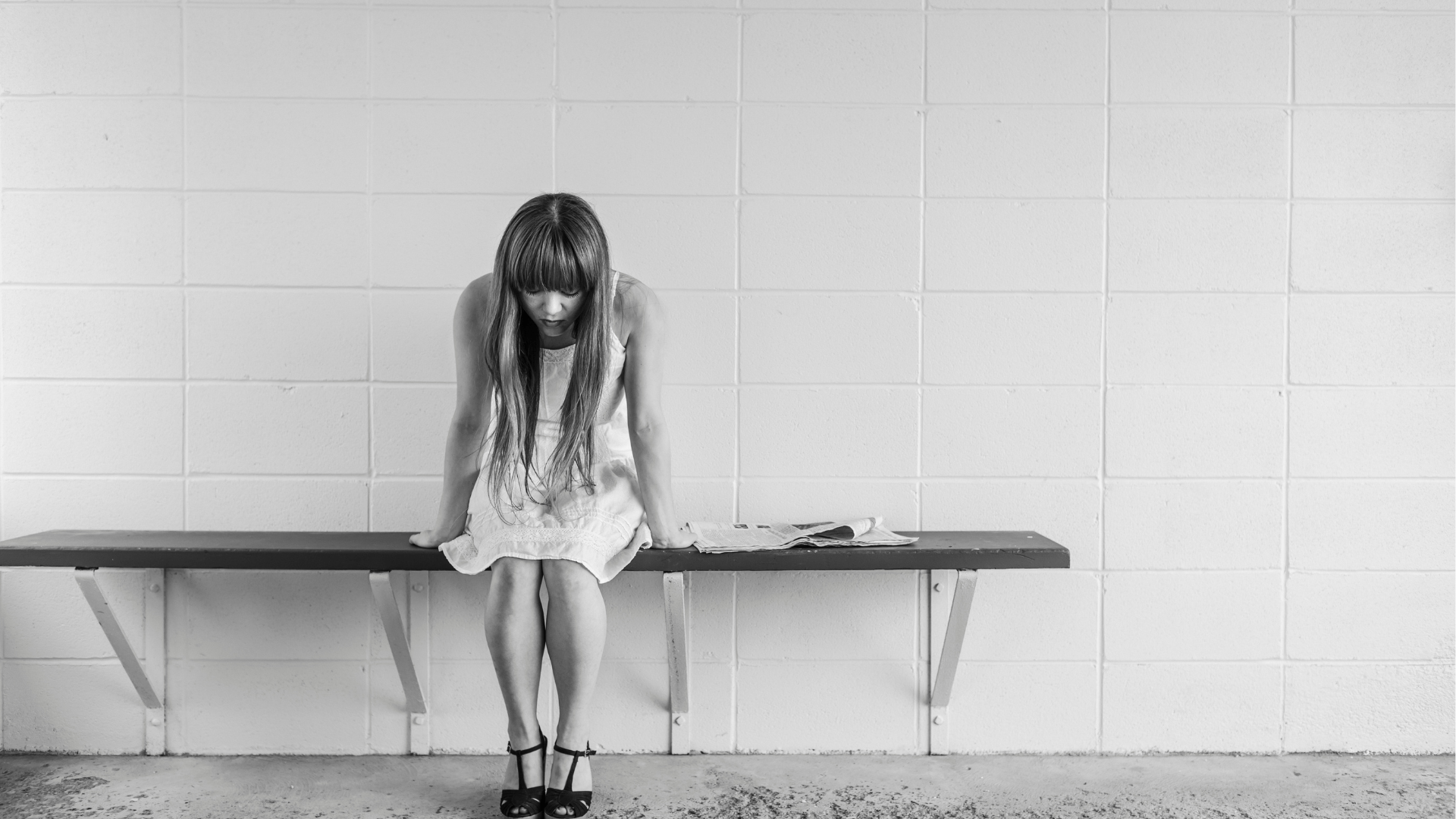
January 13, 2021
As South Africa entered the new year, it quickly became clear that 2021 would not represent a return to the normal we knew before the pandemic, and that the country, like the rest of the world, would continue living with ongoing uncertainties for at least the near future. Following arguably the most tumultuous year a Matric class had to face in recent history, the Matric Class of 2020 now await their results, with many still not having a clear idea about what their future in general, or this year in particular will hold. “The one thing that these Matrics can do now, is to focus on those things that are within their control, rather than take a wait and see approach,” says Peter Kriel, General Manager at The Independent Institute of Education, SA’s largest and most accredited private higher education provider. He says there are still many unknowns about the coming year, and the only constant one can bargain on during these times is change. “However, waiting things out until normal returns one day is not an option. The world continues despite the challenges we continue to face, and there are things you can do to continue on your personal and professional journey to ensure you are not left behind,” he says. Kriel says one of the most important things 2020’s Matrics can do in the coming weeks, until results are released on February 23 (as currently scheduled) is to review their plans for the year and ensure that they will be able to continue on their chosen path regardless of any new and unforeseen circumstances that may arise to throw a spanner in the works. “So, if you have signed up to study somewhere, you can use these coming weeks to make sure that your institution will be able to continue seamlessly in the event of, for instance, another hard lockdown. The way to determine this is to ask an institution about their readiness and ability to quickly adapt their offering to a hybrid or online model,” he says. “Additionally, you should not just take an institution’s word for it, but also speak to students who experienced last year’s response. You need to ask questions to determine whether students last year were able to continue their learning journey seamlessly, whether they got the support they needed to do so effectively, and whether the learning was adapted in such a way that they continued to be engaged,” says Kriel. Kriel says that on-campus education is the preferred and most effective way to learn for many young people and it has strong advantages in terms of outcomes. So, if you want the campus experience don’t give up on that aim now – look for an in-contact institution that can move between online and face-to-face as circumstances change. For some students, distance education is a great alternative, but it is not right for everyone – it is a mistake to think that in current times it is a direct swop for contact. If contact is what you want, make sure your institution can move between the two so you can have the benefit of contact with lecturers and classmates in person when the pandemic allows. Kriel adds that those Matrics from the Class of 2020 who have not yet decided on their plans for the year, and are waiting for results before making a move, should seriously consider approaching an institution to talk through their options rather than leaving it too late. “Our world has changed forever and is becoming more and more competitive all the time, with technology constantly developing and giving rise to new and exciting career paths. Instead of waiting for your results and attempting to get clarity thereafter, use this time to contact respected registered and accredited institutions that have shown themselves to be up to the task during 2020, and speak to a student advisor about your options.” It also makes sense to ensure that your computer skills – including old-fashioned typing skills – are up to the task ahead of you. Anything you can do to make the transition easier will be very worth it in the long run, he says. “There is much that is outside all of our control right now. But there is still much that is within our control, and by focusing on what they can make happen instead of the many uncertainties that prevail, the Class of 2020 can continue to build on the resilience they displayed last year, and ensure the best possible outcomes for themselves in the face of any new or existing challenges we will face in the future.” Issued by: MEROPA COMMUNICATIONS On behalf of: THE INDEPENDENT INSTITUTE OF EDUCATION www.theworldofwork.co.za or www.iie.ac.za Note to editor: The Independent Institute of Education (The IIE) is a division of the JSE-listed ADvTECH Group, Africa’s largest private education provider. The IIE is the largest, most accredited registered private higher education institute in South Africa, and the only one accredited by The British Accreditation Council (BAC), the independent quality assurance authority that accredits private institutions in the UK. By law, private higher education institutions in South Africa may not call themselves Private Universities, although registered private institutions are subject to the same regulations, accreditation requirements and oversight as Public Universities.

July 30, 2020
Choosing the subjects they will sit for during the National Senior Certificate exam three years from now is an important and challenging task facing Grade Nines at the moment, because this combination of subjects will influence their choices down the line, and impact on performance and motivation over the next three years and beyond. Therefore Grade Nines should, with the help of their parents, guardians, teachers and outside experts, give careful consideration to the factors at play before settling on their final subject combination, an education expert says. “Trying to cover all your bases taking into account all eventualities can become quite confusing, particularly if you don’t yet know what you want to do after school, so we advise Grade Nines to consider the holistic 3-P approach when weighing the pros and cons of various subject combinations,” says Dr Gillian Mooney, Dean: Academic Development and Support at The Independent Institute of Education, SA’s largest and most accredited private higher education provider. She says Grade Nines are required to select at least seven subjects on which they will be tested in Matric, four of which are compulsory: Home Language, Second Language, Maths or Maths Literacy, and Life Orientation. The balance then, are elective subjects, and should be chosen after careful consideration. “When considering your options for this balance of subjects, you should take into account your Passion, your Performance, as well as the Potential options available to you in future,” she says. PASSION Dr Mooney says one of the benefits of the current situation, where much work is done independently at home by learners and therefore without peers or teachers influencing perceptions, is that learners will be able to get a better idea of which subjects they are passionate about. “If you find yourself drawn to a particular subject, or that you have a natural feel for it, that’s a definite sign that you should consider it as part of your subject choice bundle. Of course it may be that you are good at something but have no idea how that can translate into a possible career down the line. “In that case, it would be a great idea to approach career centres and student counsellors – online for now of course – at higher education institutions, and discuss with them potential fields in which this subject may play a role. That will have the double benefit of revealing careers you may not have been aware of, as well as providing a boost of motivation to commit to doing even better because now you know where your passion might take you in future.” POTENTIAL Even if you already have an idea of what you want to study after school, you should still leave as many doors as possible open to allow for a change of heart later, and that is where so-called ‘gateway’ subjects enter the picture. “Certain subjects such as Maths and Science allow you to keep your options open, as many areas of further study require them. If you are one of the many who struggle with precisely these subjects, it may be worth keeping only one of them so that you can focus your efforts,” says Mooney. “The aim is to ensure that your choice positions you well to pursue as wide a range of qualifications as possible, that will allow you to demonstrate a well-rounded foundation when you leave school.” Mooney adds that learners struggling with a particular subject now because of the changed circumstances of lockdown should not just give up and walk away from it. “Things may be harder now, but it is worth persevering and getting additional help if necessary,” she says. PERFORMANCE It is important to also include subjects that will boost your Matric aggregate, Dr Mooney says. “Because of the greater academic demands at higher education level, and the limited space at public universities and private higher education institutions, admission to higher education is performance-based – meaning simply that those with better marks stand a better chance of landing a space. “So it makes sense to choose one or two subjects which will boost your aggregate and improve your chances of being accepted into the higher education institution and qualification of your choice,” she says. Mooney says although our current environment is challenging due to Covid-19 and the resultant lockdowns, Grade Nines should still look to the future and focus on what they can do now to broaden their options in future. “We don’t know what the future will look like, not in the short term nor the long term. Yes, we are facing unprecedented challenges, but with that, we will also be facing new opportunities and different ways of doing in future. Where in the past the road after school was pretty standard for many, who opted to pursue historically prestigious degrees without giving it much thought, the world of work has been changing and will change dramatically. “So be sure you are aware of emerging careers, and that you position yourself in such a way that you’ll be prepared for the workplace of the future, not the workplace of the past.
© 2025
All Rights Reserved | ADvTECH Group Ltd



